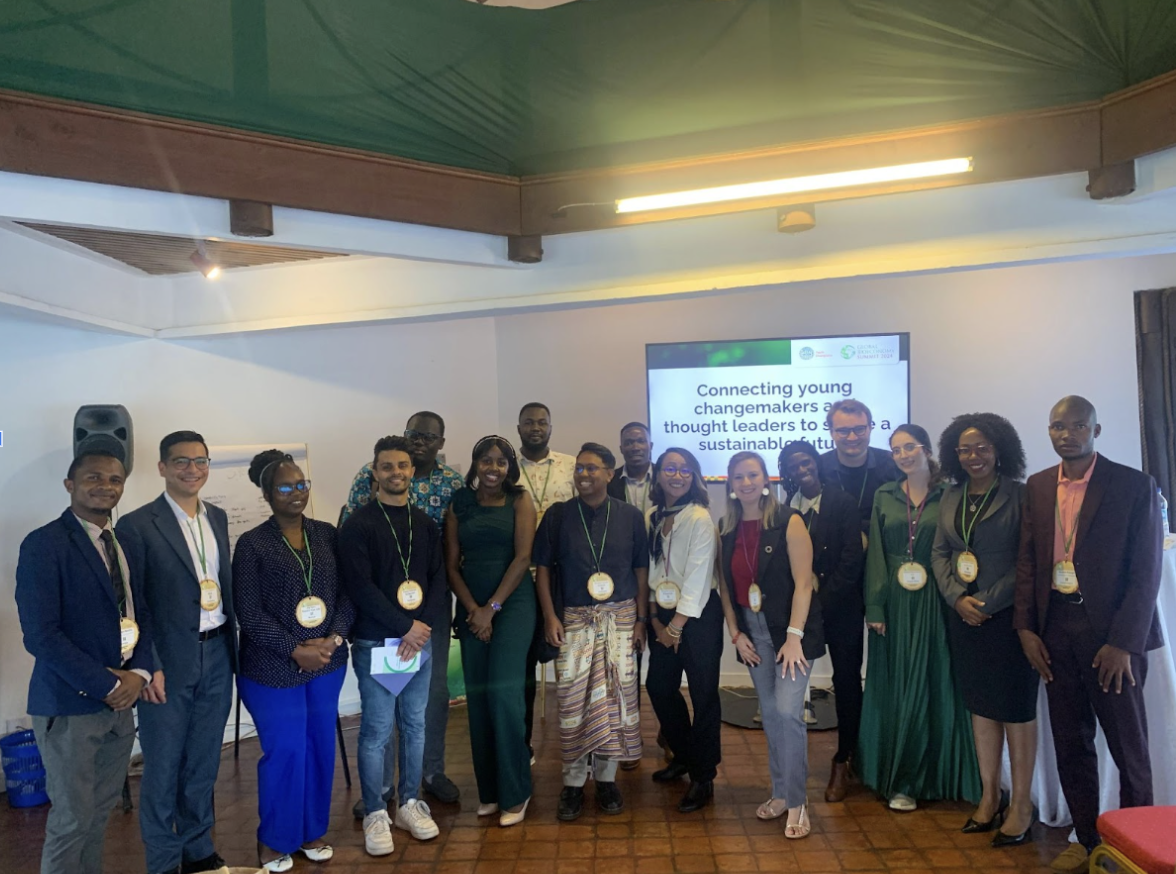
Randiano Tamelan and Sergina Loncle of Kopernik (center) with fellow participants at the Global Bioeconomy Summit 2024 in Nairobi, Kenya, October 2024.
In October 2024, I had the opportunity to represent Kopernik at the Global Bioeconomy Summit in Nairobi, Kenya, alongside Sergina Loncle, Kopernik’s Senior Director of Communications and Community Initiatives. This invitation came through the Seeding the Future Foundation, one of our key partners supporting the PANGAN initiatives in West Timor since 2022.
The summit gathered over a thousand individuals from various organizations worldwide. This year’s theme, “One Planet – Sustainable Bioeconomy Solutions for Global Challenges,” set the stage for engaging discussions and collaborative learning. We were honored to introduce the PANGAN initiative, which spotlighted Indonesia’s eastern region. There, we showcased its rich indigenous farming practices that are both climate resilient and integral to supporting food security.
The concept of bioeconomy, though new to us in terminology, is something we have implicitly implemented through our initiatives, particularly in promoting food security. Bioeconomy can be understood as the use of natural resources, such as plants and organic materials, to create products, energy, and services that address environmental, social, and economic challenges. Its core principals emphasize sustainability and reducing dependence on finite resources like fossil fuels.
One of the farmer participants of the PANGAN program, Mama Ester, is preparing tomato seedlings in Kesetnana Village, So’e, South Central Timor Regency (TTS).
At Kopernik, we apply these principles through the PANGAN initiative, which focuses on promoting local, climate-resilient food systems. This initiative supports food security by encouraging the consumption of healthy, affordable local foods. These foods not only meet nutritional needs but also help combat malnutrition and stunting, ultimately contributing to overall well-being of the communities.
Beyond consumption, PANGAN’s agribusiness approach enhances the economic value of local food products. By empowering communities to create value-added products, the initiative provides opportunities for economic growth while preserving traditional practices. This approach also fosters greater self-reliance, reducing dependence on external products and resources.
Randiano Tamelan and Sergina Loncle with Johann Liebeton, Bioeconomy Youth Champions of International Advisory Council on Global Bioeconomy (IACGB).
In Nairobi, we had the honor of presenting the PANGAN initiative on two different stages. The first was during the GBS pre-event organized by the Seeding the Future Foundation and Welthungerhilfe. The second was a keynote address in a session titled “Connecting Young Changemakers and Thought Leaders to Shape a Sustainable Future,” hosted by the IACGB Bioeconomy Youth Champions. Both presentations sparked meaningful discussions and received overwhelmingly positive feedback, highlighting the relevance of our work and its potential to inspire others on a global scale.
The summit was also a valuable opportunity to gain new perspectives, explore ideas, and forge partnerships to expand our efforts. Moving forward, we aim to integrate bioeconomy principles more deliberately into our programs, ensuring alignment with sustainable practices and community well-being.
The summit underscored the growing global focus on bioeconomy as a crucial strategy for sustainable development. Countries worldwide, including Indonesia, are recognizing its potential. In Indonesia, the early blueprint of a bioeconomy emphasizes an economic model that sustainably utilizes biological resources and processes to create higher value-added goods and services. This approach aims to advance the nation as a fair, prosperous, and sustainable economy while upholding the essence of humanity. This vision aligns seamlessly with our existing initiatives and provides a clear roadmap for future endeavors.
To conclude, one proverb repeated throughout the summit resonated deeply: “If you want to go fast, go alone. If you want to go far, go together.” With this spirit, collaboration becomes essential to the future of bioeconomy. By working together and learning from indigenous practices, we can build more resilient and sustainable communities, embracing bioeconomy principles as a pathway to global sustainability.

